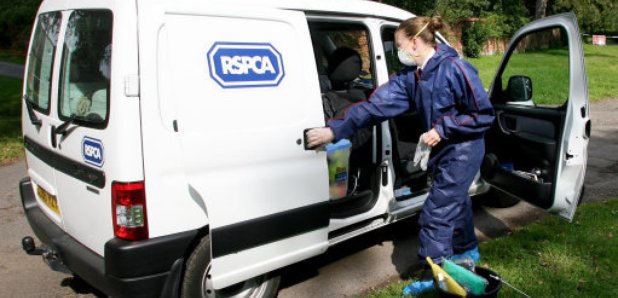380 Calls To RSPCA About Exotic Animals In Lancs
25 April 2019, 09:04 | Updated: 25 April 2019, 09:07

Includes an iguana that was found in the canal in Lancaster
The RSPCA received more than 380 calls about exotic animals last year in Lancashire and rescued a rising number of pets, new figures show.
The UK’s largest and oldest animal welfare charity has released its annual statistics today (Thursday 25 April), which reveal the plight of the more unusual animals being kept as pets and for entertainment in the UK.
In Lancashire the charity received 386 calls about exotic animals and rescued 277 exotic animals and 241 fish being kept as pets, a rise on 2017 total of 151 creatures and one fish.
Nationally, the charity received a total of 15,790 calls about abandoned, stray, sick, suffering and neglected exotic reptiles, mammals, birds and fish, more than 40 a day, or more than one every hour.
The RSPCA believes the reason behind some of the suffering of these exotics pets is that owners do not do their research and don’t understand the type and amount of care that they need, resulting in them being neglected, dumped or escaping.
A lost iguana was rescued from a tree over a Lancaster canal last year.
The amazing rescue, which took place last September involved six RSPCA inspectors, including members of the specialist water rescue team, and a local tree surgeon from Hortus Trees and Landscapes.
An attempt had been made to catch the escaped pet after he was spotted in the tree over the canal on Sunningdale Crescent, Hest Bank, previously but the rescue was unsuccessful after he disappeared into the water.
RSPCA deputy chief inspector (DCI) Carl Larsson said: “We couldn’t believe it when we got the call saying he was back in the cherry tree.
“Kevin Backhouse from Hortus - who kindly offered his services for free - attended and climbed up the tree and began to saw off branches, encouraging the iguana to move further out over the canal where four of us from the RSPCA water rescue team were waiting in the water with a tarpaulin and a net.
“When the iguana jumped and landed on the tarpaulin he tried to make his escape but luckily this time we were quick enough to catch him.”
The young male iguana was taken straight to a specialist exotics vet at The Veterinary Health Centre in Lytham St Anne’s for examination where he was found to be cold but in otherwise good health. He was then transferred to an exotics expert and the RSPCA tried to find his owner - which they did! Two months after Iggy the three-year-old iguana went missing he was thankfully reunited with his owner.
Exotics officer Inspector Kim Greaves said: “Although their numbers are small compared to more common pets, we have real concerns about the welfare of reptiles and other exotic animals kept as pets or entertainment in this country.
“Reptiles and other exotic pets are completely reliant on their owners to meet their welfare needs including requiring the correct levels of heat, light and humidity, plus an appropriate diet. Many of the animals we’re called to help are found stray outside, where they can very quickly suffer in the cold.
“These animals are commonly found for sale in pet shops and are advertised online. At least in the past, animals have often been handed over to buyers with little or no information about how to care for them properly, although new regulations in England should improve this. In some cases, we believe owners take them on simply because they believe they will be easier to care for than other pets, but it is essential that people research what is required in the care of their pet, from food, equipment, environment and vet care, before taking one on. We would also urge them to ask for help if they’re struggling to meet their needs.
“We believe that people may buy them with little idea of how difficult they can be to keep and the animals are sometimes neglected when the novelty wears off and the commitment hits home. This is why we would encourage anyone thinking of getting an exotic pet to find out as much as possible about the animal’s needs and whether they’re the right pet for them.”

